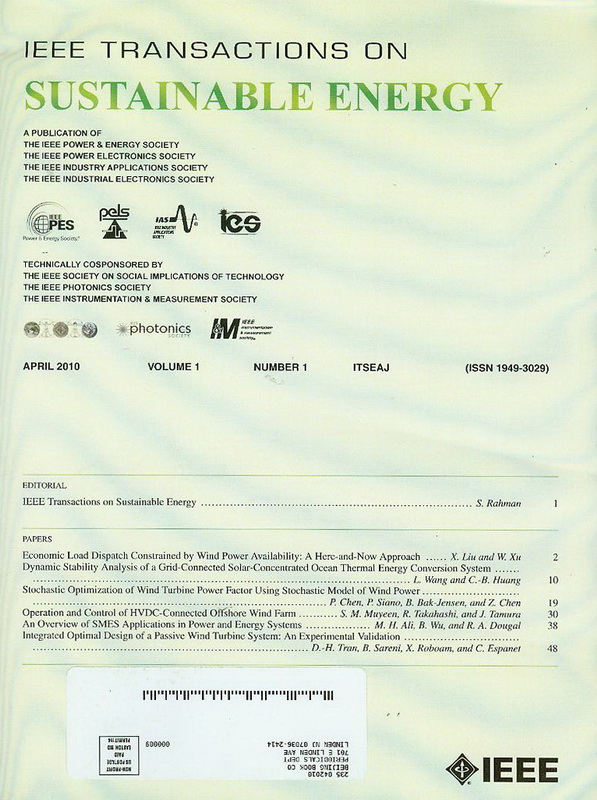中期梯级水电规划的结转蓄能评估框架:波特兰通用电力系统研究
IF 10
1区 工程技术
Q1 ENERGY & FUELS
引用次数: 0
摘要
梯级水电(CHP)的中期规划确定了水库中适当的结转蓄水量,以优化可用水资源的利用。这种优化寻求当期发电量(即眼前效益)和未来期潜在发电量(即未来价值)的最大化。因此,在中期规划中,适当量化结转存储中的未来价值对于实现眼前利益与未来价值之间的平衡至关重要。为此,本文提出了一个量化剩余储能未来价值的框架,该框架包括三个主要步骤:1)构建一个确定性模型,计算给定水平的剩余储能在未来一段时间内可能产生的最大水力发电量;ii)对构建的模型应用分区-提取算法,提取每个水库的隐式位置边际水值(LMWV);iii)根据提取的LMWV制定一套分析规则,有效地计算未来值。这些规则可以作为可处理的混合整数线性约束无缝集成到中期热电联产规划模型中,以适当地量化未来价值,并且可以很容易地可视化,为热电联产运营商提供有价值的见解。最后,波特兰通用电气热电联产的数值结果表明,所提出的框架在帮助中期热电联产规划确定合适的结转存储策略方面是有效的。本文章由计算机程序翻译,如有差异,请以英文原文为准。
A Carryover Storage Valuation Framework for Medium-Term Cascaded Hydropower Planning: A Portland General Electric System Study
Medium-term planning of cascaded hydropower (CHP) determines appropriate carryover storage levels in reservoirs to optimize the usage of available water resources. This optimization seeks to maximize the hydropower generated in the current period (i.e., immediate benefit) plus the potential hydropower generation in the future period (i.e., future value). Thus, in the medium-term planning, properly quantifying the future value deposited in carryover storage is essential to achieve a balanced trade-off between immediate benefit and future value. To this end, this paper presents a framework to quantify the future value of carryover storage, which consists of three major steps: i) constructing a deterministic model to calculate the maximum possible hydropower generation that a given level of carryover storage can deliver in the future period; ii) extracting the implicit locational marginal water value (LMWV) of carryover storage for each reservoir by applying a partition-then-extract algorithm to the constructed model; and iii) developing a set of analytical rules based on the extracted LMWV to effectively calculate the future value. These rules can be seamlessly integrated into medium-term CHP planning models as tractable mixed-integer linear constraints to quantify the future value properly, and can be easily visualized to offer valuable insights for CHP operators. Finally, numerical results on Portland General Electric's CHP demonstrate the effectiveness of the presented framework in aiding medium-term CHP planning to identify suitable carryover storage strategies.
求助全文
通过发布文献求助,成功后即可免费获取论文全文。
去求助
来源期刊

IEEE Transactions on Sustainable Energy
ENERGY & FUELS-ENGINEERING, ELECTRICAL & ELECTRONIC
CiteScore
21.40
自引率
5.70%
发文量
215
审稿时长
5 months
期刊介绍:
The IEEE Transactions on Sustainable Energy serves as a pivotal platform for sharing groundbreaking research findings on sustainable energy systems, with a focus on their seamless integration into power transmission and/or distribution grids. The journal showcases original research spanning the design, implementation, grid-integration, and control of sustainable energy technologies and systems. Additionally, the Transactions warmly welcomes manuscripts addressing the design, implementation, and evaluation of power systems influenced by sustainable energy systems and devices.
 求助内容:
求助内容: 应助结果提醒方式:
应助结果提醒方式:


